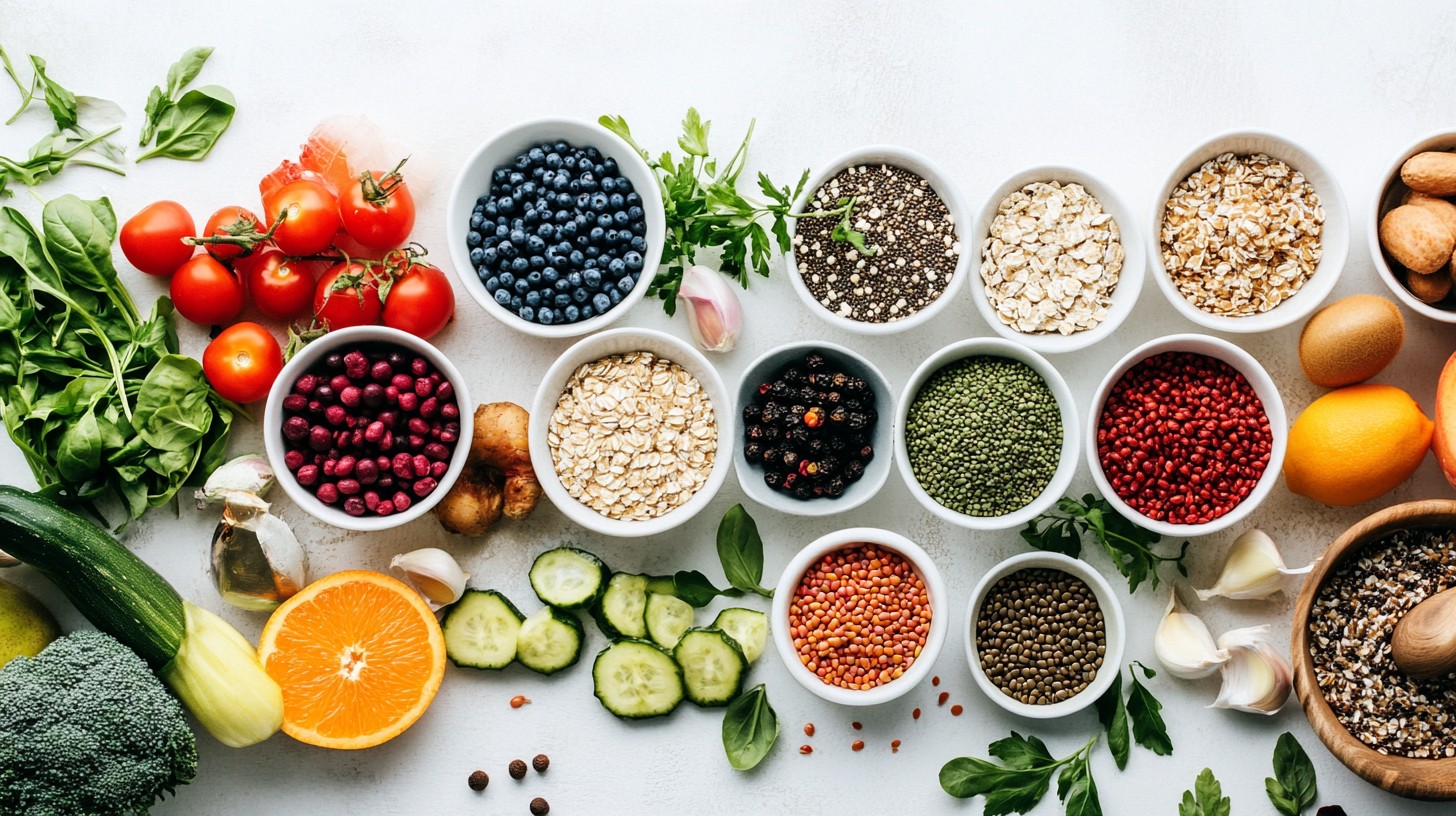An anti-inflammatory diet is often followed to help reduce inflammation in the body. Inflammation is part of the body’s natural defence mechanism, as the immune system works to fight off invaders. However, in some conditions, inflammation can become chronic or harmful, impacting overall health.
Anti-inflammatory foods are beneficial in managing inflammatory diseases or unhealthy conditions, though more research is needed to clarify the precise mechanisms. An anti-inflammatory diet comprises various foods with anti-inflammatory properties to help lower inflammation.
Understanding Inflammation in the Body
Acute Inflammation
When an injury or illness occurs, such as a skin cut or an allergen entering the body, the immune response is activated, releasing immune cells to the affected area. This triggers an initial acute inflammatory response in the body.
An inflammatory response is part of the body’s immune system, designed to protect against viruses, bacteria, pathogens, and allergens entering the bloodstream. Visible signs of inflammation are often a natural response, working to heal damaged cells and protect the body. It is characterised by redness, swelling, and pain.
Chronic Inflammation
However, a chronic inflammatory response can arise when inflammation persists beyond an acute response. For example, prolonged exposure to an allergen or toxin can stimulate the immune system for extended periods.
Chronic inflammation may also occur when there is no actual threat or allergen present, causing the immune system to attack healthy cells. This is related to autoimmune disorders and genetic factors.
Low-grade chronic inflammation can lead to numerous diseases, depending on the location and extent of tissue damage. Chronic inflammation can harm cells and tissues, and symptoms may not always be physical but instead act as a silent threat within the body.
Inflammation Caused by Diet and Lifestyle
There are many factors that contribute to chronic inflammation. Given that diet can influence chronic inflammation, it is essential to understand these causes. Research highlights several common contributors: prolonged stress, exposure to allergens, toxins or chemicals, a diet high in sugar and fat, smoking, and inadequate sleep.
Many studies have linked the typical Western diet with increased inflammation. Research shows that Western dietary habits often result in raised inflammatory markers in the blood, as many of these foods promote inflammation. This includes foods high in sugar, gluten, fat, as well as processed foods and meats.
Inflammatory foods can lead to ongoing inflammation in the body, potentially contributing to various diseases. For this reason, dietitians and healthcare professionals often recommend an anti-inflammatory diet. The inflammatory response is thus a natural process aiding in healing, but when it becomes chronic, it can threaten one’s health.
Health Issues Associated with Inflammation
Research continues to explore how chronic inflammation is linked to health conditions. Although some studies show a correlation between chronic inflammation and specific diseases, it remains unclear if inflammation contributes directly to these diseases or if the diseases themselves cause the inflammation.
Certain studies suggest that inflammation may damage healthy tissues and organs over time, increasing the risk of various chronic health issues:
- Metabolic Disorders
Chronic inflammation may worsen insulin resistance in type 2 diabetes, disrupting blood sugar control. - Cardiovascular Diseases
Chronic inflammation contributes to atherosclerosis and plaque buildup in the arteries, potentially leading to heart disease, stroke, high blood pressure, and peripheral artery disease. - Autoimmune Diseases
In autoimmune conditions, the immune system mistakenly targets healthy tissues, even in the absence of harmful antigens. Examples include rheumatoid arthritis, multiple sclerosis, inflammatory bowel disease, and lupus. - Neurodegenerative Diseases
The link between chronic inflammation and conditions like Alzheimer’s and Parkinson’s is increasingly recognised, as inflammation may harm brain cells and accelerate neurodegeneration. - Lung Diseases
Allergens can cause lung inflammation, contributing to diseases such as asthma and chronic obstructive pulmonary disease (COPD). - Mental Health Issues
The gut-brain connection suggests that chronic inflammation may contribute to depression and anxiety by affecting neurotransmitter balance and gut microbiome composition. - Cancer
While more research is needed, some studies indicate that chronic inflammation may encourage abnormal cell growth and proliferation, potentially leading to cancer development.
The Role of Anti-Inflammatory Foods
An anti-inflammatory diet includes foods rich in antioxidants, vitamins, minerals, and polyphenols, similar to those found in the Mediterranean diet. These foods can help reduce harmful inflammatory responses in the body.
An anti-inflammatory diet may lower the risk of diseases associated with inflammation. It may also be beneficial for those who already have a chronic inflammatory condition, as it promotes foods that reduce inflammation while excluding those that may increase it.
What Does an Anti-Inflammatory Diet Look Like?
An anti-inflammatory diet includes a wide variety of fresh, raw foods, with processed and fast foods mostly excluded.
- Fruits: A variety of colours, such as berries, grapes, cherries, apples, and citrus fruits.
- Leafy Greens and Vegetables: Spinach, kale, broccoli, onions.
- Spices: Flavour foods with more spices and less salt. Examples include turmeric, ginger, cinnamon, and curcumin.
- Fish: Salmon, anchovies, sardines, tuna, which are rich in omega-3 oils.
- Nuts and Seeds
- High-Fibre Foods: Whole grains like oats.










